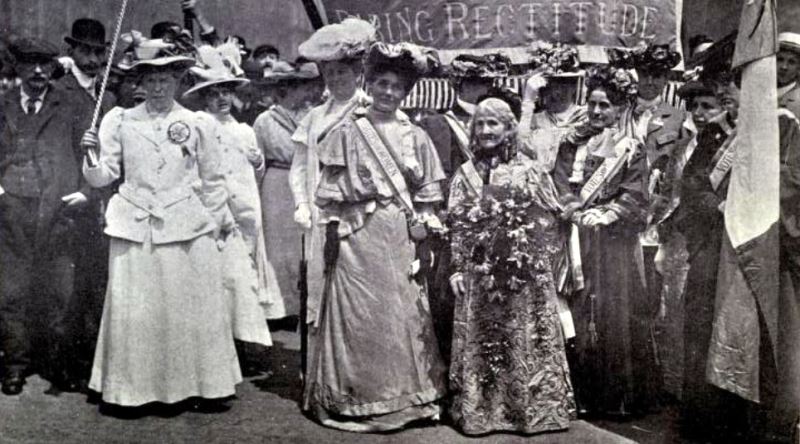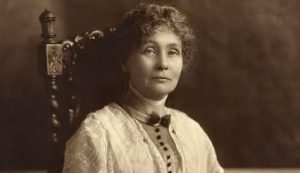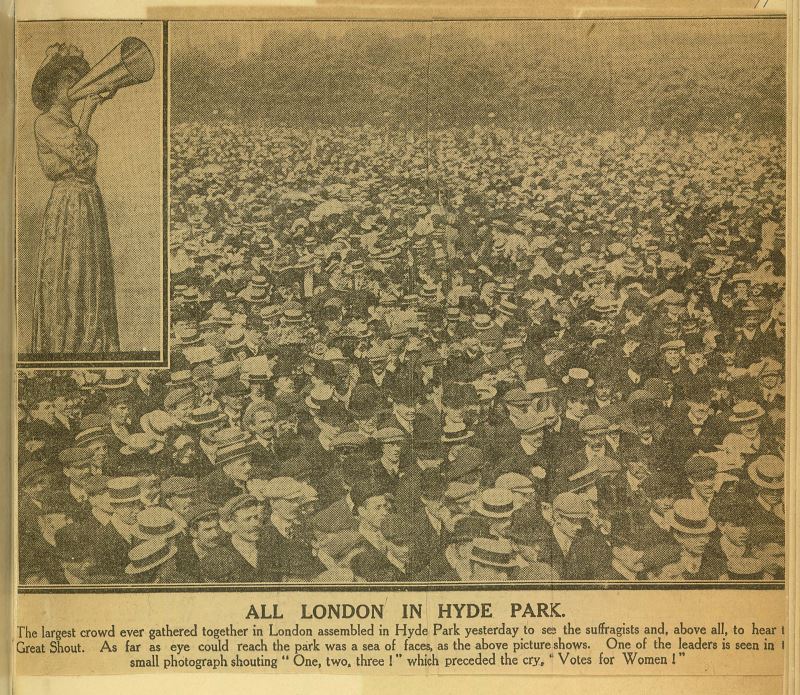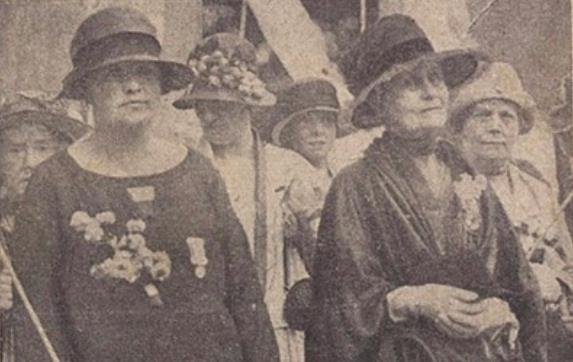The June 21, 1908 rally in England plays a major role in understanding the place of women in society today. The Rally that Paved the Way for Women’s Participation in Modern Life: Women’s Sunday

Women’s Sunday… Rally held in England on June 21, 1908, with the main purpose of demanding women’s right to vote but also women’s economic, social and political rights in general.
After the industrial revolution that started in England, a country rich in iron and coal needed for industrialization, fortunate in terms of resources and markets because it had colonies in many parts of the world, ruled by a constitutional monarchy where private property was protected, a country with no labor shortage due to the intense wave of migration from the village to the city as a result of the agricultural revolution in the 17th century, the middle class became richer by establishing petty bourgeois factories and as a result of this change, a working class emerged. The workers who worked long hours for low wages in factories were deprived of all social and political rights.
As Britain industrialized, the working class became increasingly large, and soon became the largest class in society.
They were organizing and the ruling classes, seeing them growing in power, had to give them some rights. In 1832, the “Great Reform Act” was passed and only men were granted the right to vote. But industrialization and the drive for more production required more labour force. Because of this necessity, women’s participation in economic life was also increasing.
The activism of women in social and economic life had led to some debates about their having the same rights as men in the political sphere. There had been attempts in this direction in parliament from time to time, but no results were being achieved. for this reason, they felt the need to organize and the first important organization for suffrage was established in 1889 under the leadership of activist Emmeline Pankhurst and her husband Richard Under the name of Women’s Franchise League. This organization, which originally advocated for married women to have the right to vote in local elections, evolved over time into a view that women should have the same political rights as men in elections throughout the country. The organization was dissolved in 1903 in order to organize nationally and The Women’s Social and Political Union (wspu) was founded under the leadership of Emmeline Pankhurst.

Instead of the old-style methods, the WSPU was organizing more aggressive actions, making noise in the country and putting pressure on the political establishment for reform. Especially after 1905, militants called suffragettes organized various actions and marches. As a result of these actions, members of the organization faced sanctions such as detention and imprisonment. By the summer of 1908, the organization, which had the chance to make itself heard by the masses through its actions in the press, had become a very large and effective organization.
Seeing that they now had the power to take action with a large mass, Emmeline Pankhurst led a march to Hyde Park in London on June 21, 1908. The date of the march was set for Sunday, a day off, in order to ensure a large turnout of workers. Posters calling for the march were put up all over the country and advertisements were placed in newspapers. Participants were asked to wear white, in line with the WSPU colors, and to wear green and purple scarves and accessories.
On the day of the rally, up to 30,000 women from all over the country marched in seven processions to Hyde Park, led by a suffragette marshal. By the time they reached Hyde Park with various banners and slogans, their numbers had reached 500,000, including the men who had joined in solidarity with the women with their colorful ties and the curious onlookers who came to watch the demonstration. It was the largest demonstration ever organized within the borders of the UK. At the demonstration, 80 speakers addressed the crowd in Hyde Park and women made their demands in the strongest possible terms.

The action was very loud in the country, but the political establishment was not taking action.
Therefore, instead of peaceful demonstrations, the suffragettes started to carry out more radical actions such as attacking shop windows, sabotage and were arrested. The arrested suffragettes started a hunger strike. The government responded to the hunger strikes with force-feeding under the pretext of women’s right to life.

In 1914, with the outbreak of the First World War, women began to take men’s jobs as British men were being sent to the front. In February 1918, the House of Commons passed a law (the representation of the people act) that allowed women over the age of 30 to vote, provided that they or their husbands had sufficient assets. On November 21, 1918, women were granted the right to be elected by law. Following these laws, 8.5 million women voted for the first time in the general elections held on December 13, 1918. In 1928, the voting age was lowered to 21.
As both a consequence and a cause, this action has gained an important place in British politics. It was the result of the active involvement of women in the economic structure created by the Industrial Revolution and the realization by women that women were as important in social life as men. At the same time, it created an element of pressure on the political establishment, which failed to take action after the protest, and constituted the starting point of a process in which the political establishment, which left the First World War weakened at the end of the process that continued with radical actions, would no longer be able to resist the demands of women.
